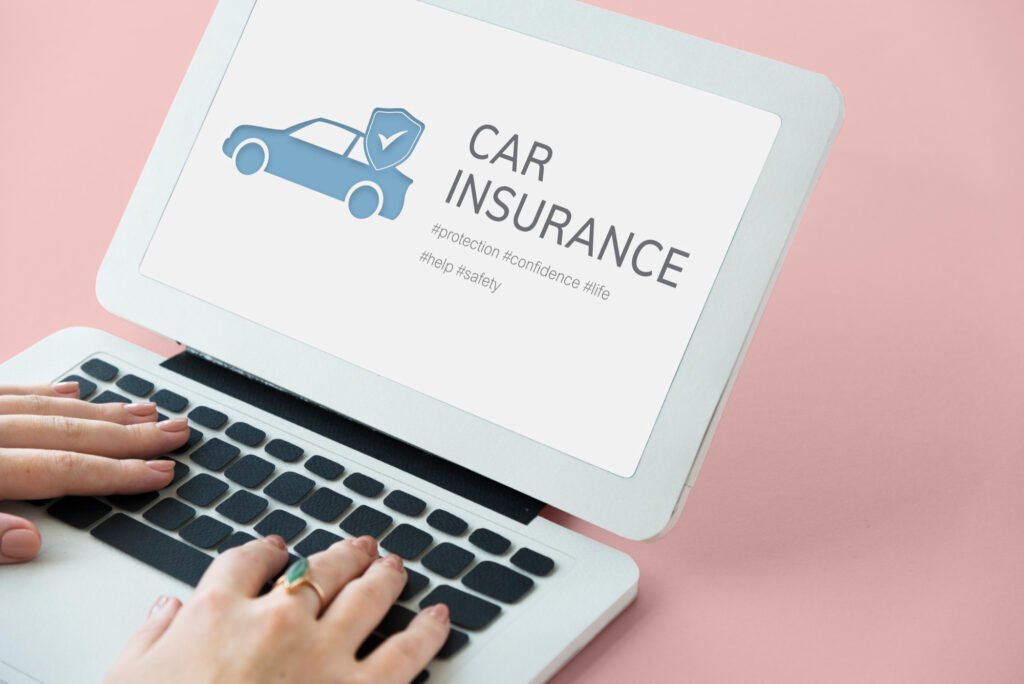Introduction
Car insurance is a necessity for every driver, but it doesn’t have to be expensive. Finding affordable car insurance can help you save money while still ensuring that you’re protected in case of an accident. However, with so many providers and coverage options available, it can be challenging to determine the best way to lower your costs. In this guide, we’ll walk you through the best strategies to lower your car insurance premiums, understand how policies work, and find the best deals without compromising on coverage.

Understanding Car Insurance Basics
What is Car Insurance?
Car insurance is a contract between a driver and an insurance company that provides financial support in case of accidents, theft, or damage to the vehicle. It helps cover costs like medical expenses, repairs, and liability. Most states legally require drivers to carry at least a basic level of coverage.
How Does Car Insurance Work?
When you buy a car insurance policy, you commit to paying a monthly or yearly fee. In return, the insurance provider offers protection as outlined in your policy. If you’re involved in an accident, you can submit a claim, and the insurer will cover approved costs according to your coverage terms and deductible.
Different Types of Car Insurance Coverage
Liability Insurance
Offers protection against harm and injuries you cause to others in an accident, covering both bodily injury and property damage liability. Mandatory in most states.
Collision Insurance
Covers repair costs for your vehicle after a collision, regardless of who is at fault. This coverage is essential if you have a new or expensive car.
Comprehensive Insurance
Protects against non-collision damages like theft, vandalism, fire, and natural disasters, offering comprehensive coverage for greater security.
Personal Injury Protection (PIP)
Helps cover medical expenses, lost wages, and even funeral costs for you and your passengers after an accident. Required in some states with no-fault laws.
Uninsured/Underinsured Motorist Coverage
Protects you if you’re hit by a driver without insurance or with insufficient coverage to pay for damages and medical bills.

Factors That Affect Your Car Insurance Premiums
Your Driving Record
Insurance companies assess your driving history, including accidents, traffic violations, and DUI convictions. A clean driving record results in lower premiums, while multiple infractions can increase costs significantly.
Your Age and Gender
Young drivers under 25 typically pay higher rates due to inexperience and higher accident risks. Male drivers often pay more than female drivers because statistically, they are more likely to be involved in accidents.
The Type of Car You Drive
Luxury and sports cars generally have higher insurance costs due to expensive repair costs and higher theft rates. Safe, fuel-efficient vehicles typically qualify for lower premiums.
Your Location and Zip Code
Living in a high-crime area or a location with high accident rates can increase your premiums. Urban areas often have higher rates compared to rural locations.
Credit Score and Its Impact on Premiums
Insurers often consider your credit score when setting rates, as lower scores indicate higher risk. A strong credit score can contribute to reduced premium costs.

Tips to Get Affordable Car Insurance
Compare Quotes from Multiple Insurance Companies
Insurance providers determine rates differently based on their risk evaluations. Use online comparison tools or work with an insurance agent to find the best deal.
Bundle Insurance Policies for Discounts
Combining your car insurance with homeowners, renters, or other insurance policies from the same provider can earn you multi-policy discounts.
Maintain a Good Credit Score
Improving your credit score over time can help lower your insurance premiums. Pay bills on time, keep debt low, and review your credit report regularly.
Choose a Higher Deductible
Opting for a higher deductible means lower premiums, but you’ll pay more out-of-pocket if you file a claim. Choose a deductible amount that you can afford in case of an accident.
Take Advantage of Discounts
Safe Driver Discounts
If you have a clean driving record, insurers may reward you with lower rates.
Low Mileage Discounts
Drivers who don’t drive often may qualify for lower premiums. Usage-based insurance plans can lower expenses.
Multi-Vehicle Discounts
Insuring multiple vehicles under the same policy can reduce your costs.
Student Discounts
Students with good grades (usually a B average or higher) may be eligible for lower rates.
Military Discounts
Active-duty military personnel and veterans may receive special discounts.

The Role of Telematics and Usage-Based Insurance
What is Telematics?
Telematics refers to technology that tracks your driving habits, such as speed, braking, and mileage, through a device installed in your vehicle or a mobile app.
How Usage-Based Insurance Can Lower Your Premiums
By installing a telematics device or using an app, safe drivers can qualify for lower rates based on their actual driving behavior instead of generalized risk assessments.
Best Telematics Programs to Consider
Many insurers offer telematics-based policies, such as Progressive’s Snapshot, Allstate’s Drivewise, and State Farm’s Drive Safe & Save.
Why Shopping Around for Car Insurance is Important?
How Often Should You Compare Rates?
Experts recommend shopping for car insurance every 6 to 12 months to ensure you’re getting the best deal and taking advantage of new discounts.
What to Look for in an Insurance Policy?
Compare not just prices, but also coverage options, deductibles, customer service ratings, and claims processing efficiency.

Usual Mistakes to Avoid When Purchasing Car Insurance
Choosing the Cheapest Policy Without Checking Coverage
Choosing a cheap policy might result in insufficient coverage, putting you at financial risk when needed most.
Not Asking About Available Discounts
Many people miss out on savings simply because they don’t ask about discounts.
Forgetting to Update Your Policy After Life Changes
Major life events like marriage, moving, or a new job can affect your rates. Update your policy accordingly.
Ignoring Policy Exclusions and Limitations
Always read the fine print to understand what your policy does and doesn’t cover.
Conclusion
Finding affordable car insurance doesn’t mean you have to sacrifice quality coverage. By understanding how insurance works, comparing quotes, leveraging discounts, and using telematics, you can significantly reduce your premiums. Be proactive, shop around, and make informed choices to secure the best deal possible.
Car insurance companies UK
Car insurance companies US
A Comprehensive Guide to Selecting the Right Car Insurance in the UK
FAQs
u003cstrongu003eHow can I lower my car insurance rates quickly?u003c/strongu003e
You can lower your rates by maintaining a clean driving record, increasing your deductible, and asking about discounts.
u003cstrongu003eDoes my credit score affect car insurance rates?u003c/strongu003e
Yes, in most states, a higher credit score can lead to lower insurance premiums.
u003cstrongu003eIs it worth switching car insurance companies often?u003c/strongu003e
Yes, shopping around every 6–12 months can help you find better rates and new discounts.
u003cstrongu003eWhat are the best discounts to ask for when buying car insurance?u003c/strongu003e
Ask about safe driver discounts, low mileage discounts, multi-policy discounts, and good student discounts.
u003cstrongu003eCan I get affordable car insurance with a bad driving record?u003c/strongu003e
Yes, but your options may be limited. Consider usage-based insurance or high-risk insurance providers.


Pingback: Health Insurance Plans Explained: Finding the Best Coverage for Your Needs 2025